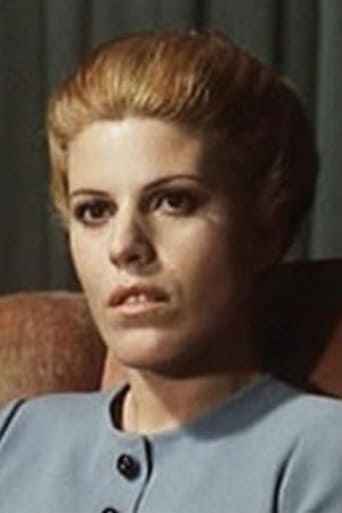Vashirdfel
Simply A Masterpiece
Grimerlana
Plenty to Like, Plenty to Dislike
Rio Hayward
All of these films share one commonality, that being a kind of emotional center that humanizes a cast of monsters.
Zandra
The movie turns out to be a little better than the average. Starting from a romantic formula often seen in the cinema, it ends in the most predictable (and somewhat bland) way.
philosopherjack
Marco Bellocchio's Slap the Monster on Page One certainly reflects a particular time and place, seeped in the self-satisfied calculations of the monied Italian establishment, but it resonates bleakly in our time of heightened political cynicism and authoritarianism and of systematic disregard for truth. Gian Maria Volonte's Bizanti is the editor-in-chief of a prominent newspaper, leading its self-portrayal as a societal bulwark against violent leftist forces. When a young well-connected woman is brutally murdered, the paper seizes on the story in the way media always does, as a flagrant circulation booster and, when a likely suspect emerges, as particularly potent evidence of the degradation of the left. But the reporter on the story becomes aware that the trail is all too well-lit and the conclusion is too convenient a contribution to the narrative of a looming election; his reward for his awakening is to get fired. The film's subtlety lies in how Bizanti isn't at all oblivious to his personal corruption and culpability: on the contrary, he exults in it, seeing himself as the operator of an elaborate machine contributing to keep the worker suitably and obediently incentivized, and at the same time implicitly assuming that the worker understands and accepts his subjection to this calculated narcotic. Anyone who can't perceive (and it seems even appreciate, as one does a work of art) the workings of this system is merely a contemptible moron - including his wife, as he expresses in a memorably cruel outburst. In the end the truth is placed safely in storage, although with an understanding that it may be allowed to emerge in the future depending on the outcome of the election; the film ends on images of the Catholic church (by then degraded by an earlier deranged juxtaposition of the dead girl with the Virgin Mary) and then - amusingly if not subtly - on a river of garbage. Concise, dark and potent, the film might still be capable of inciting outrage, at least for a viewer still in possession of any sense of societal optimism.
JasparLamarCrabb
Marco Bellocchio's indictment of the press as an opinion-making machine that turns the public into sheep is a bit in-your-face, but it's also a well thought out and well put together thriller. In Milan, when a young girl is found murdered, a highly regarded newspaper blames a trouble-making radical and whips the public and the police into a frenzy. The paper's editor-in-chief (Gian Maria Volonté) assigns idealistic cub reporter Fabio Garriba to cover the story. Garriba soon realizes that he too is being manipulated by Volonté. It's a brutal and frank movie that makes it clear that the established press is the enemy, fabricating stories, printing half truths and innuendo over facts. Volonté, well-known for his left-wing leanings in real life, is great in a role that has him representing the establishment as both impeccable and oily at the same time. He dons three piece suits, dines with the bourgeois and comes across as a pillar of respectability when in fact he is a lying bastard. Laura Betti gives a brilliant performance as a pathetic would-be radical cut down to size by Volonté. The music is by Nicola Piovani and Ennio Morricone.
christopher-underwood
Really good, solid, political film making from a new fave of mine, Marco Belloccio. Indeed this taut thriller mixes the murky world of newspapers with the equally murky world of politics. This opens with in your face real footage of early 70s street riots in Milan. Such is the ferocity and spectacle it seems likely that once the narrative begins there will be an anti-climatic lull. Not at all, Gian Maria Volonte stars as the newspaper boss prepared to do anything for his fascist friends and the survival of his newspaper. His cynicism and by implication that of the director knows no bounds. An innocent schoolgirl is raped, there is a clear guilty party but does it suit the ends of those in charge for matters to proceed as they should? Volonte is masterly in the role, as he was in the slightly earlier, Investigation of a Citizen Above Suspicion but he is aided here by more than adequate support from all involved. Thrilling, disturbing and very provocative.
f. baez
The film's main lesson is its realism, miles away from Hollywood's view of newspaper and newsmakers, even when it tries to be critical. The cynical newspaper editor's character (played by Volontè) is a brilliant and accurate portrait of the worst manipulative journalism.




